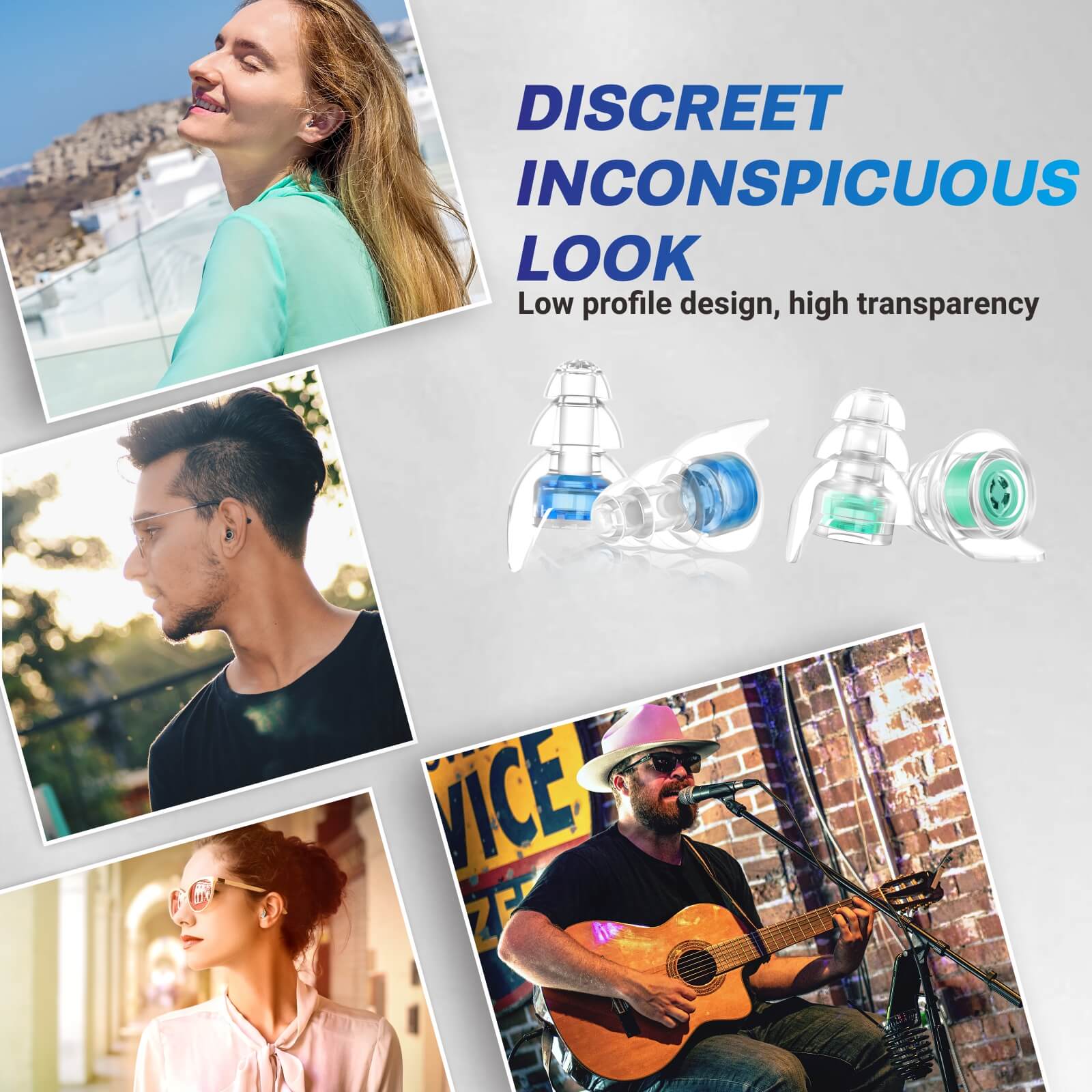Attending concerts and live music events can be an exhilarating experience, but it's important to protect your hearing while enjoying the music. That's where concert ear plugs come in. These specialized ear plugs are designed to reduce the volume of loud music without compromising the sound quality. In this article, we will explore the different types of concert ear plugs available and help you find the right one for you.
Understanding the Importance of Concert Ear Plugs
Before we dive into the different types of concert ear plugs, let's first understand why they are important. Concerts and live music events often involve high decibel levels that can cause permanent hearing damage if not properly protected. According to the World Health Organization, prolonged exposure to noise levels above 85 decibels can lead to hearing loss. Therefore, investing in a pair of concert ear plugs is crucial to safeguard your hearing.
Types of Concert Ear Plugs
There are several types of concert ear plugs available in the market, each with its own unique features and benefits. Let's explore some of the most popular options:
1. Foam Ear Plugs
Foam ear plugs are one of the most common and affordable options available. They are made of soft foam material that expands to fit the shape of your ear canal, providing a snug and comfortable fit. Foam ear plugs are disposable and offer good noise reduction across all frequencies. However, they may slightly alter the sound quality and can be less suitable for musicians or audiophiles who require accurate sound reproduction.
2. Filtered Ear Plugs
Filtered ear plugs, also known as attenuating ear plugs, are designed to reduce the volume of loud music while maintaining the clarity of sound. These ear plugs feature specialized filters that attenuate the sound evenly across different frequencies, allowing you to enjoy the music without distortion. Filtered ear plugs are available in different filter strengths, allowing you to choose the level of noise reduction that suits your needs.
3. Custom Molded Ear Plugs
Custom molded ear plugs are individually crafted to fit the unique shape of your ear. These ear plugs are made by taking an impression of your ear canal, which is then used to create a personalized plug. Custom molded ear plugs offer a superior fit and comfort, as well as excellent noise reduction. They are a popular choice among musicians and frequent concert-goers who require precise sound reproduction and maximum protection.
4. High-Fidelity Ear Plugs
High-fidelity ear plugs, also known as musician ear plugs, are designed specifically for musicians and music enthusiasts. These ear plugs are engineered to reduce the volume of loud music while preserving the clarity and richness of sound. They use advanced filters that attenuate the sound evenly across all frequencies, allowing you to hear the music as it was intended. High-fidelity ear plugs are available in different filter strengths to suit various musical environments.
Choosing the Right Concert Ear Plugs for You
When choosing the right concert ear plugs for you, it's important to consider your specific needs and preferences. Think about the level of noise reduction you require, the comfort and fit of the ear plugs, and the sound quality you want to maintain. If you're unsure, it's always a good idea to consult with an audiologist or hearing healthcare professional who can guide you in making the right choice.
Remember, protecting your hearing should be a top priority when attending concerts and live music events. Investing in a pair of concert ear plugs not only preserves your hearing health but also allows you to fully enjoy the music without any compromise.
Conclusion
Exploring different types of concert ear plugs is essential to find the right one for you. Whether you opt for foam ear plugs, filtered ear plugs, custom molded ear plugs, or high-fidelity ear plugs, the key is to prioritize your hearing health while still enjoying the music. Don't let the fear of missing out on the concert experience deter you from protecting your ears.
References:
1. World Health Organization - Noise and Hearing Loss
2. American Speech-Language-Hearing Association - Earplugs for Musicians
3. National Institute on Deafness and Other Communication Disorders - Noise-Induced Hearing Loss
